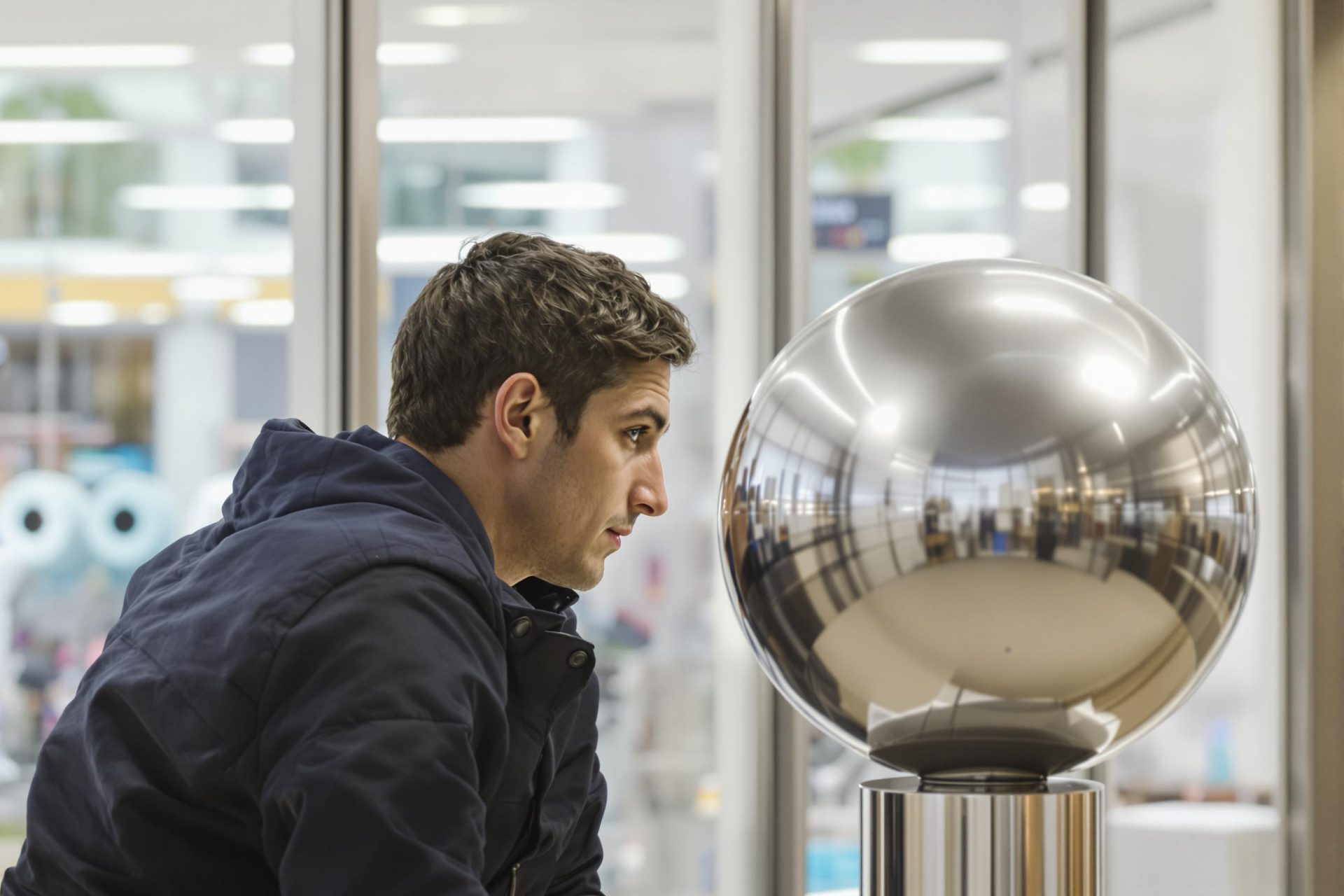Key Takeaways
- A new digital identity system called World ID uses iris scans to create a “proof of personhood.”
- Co-founded by OpenAI CEO Sam Altman, the system aims to distinguish humans from AI online.
- Users get their irises scanned by an “orb” device at specific locations, receiving a World ID and cryptocurrency (Worldcoin).
- Stores for iris scanning opened recently in six U.S. cities, including San Francisco and Los Angeles.
- Privacy experts question the necessity of iris scans and raise concerns about data security and potential misuse.
- The company claims the process is private, encrypting data and deleting scans from the orb device.
- Partnerships have been announced with companies like Visa, Match Group, and Stripe.
Imagine staring into a glowing white orb to prove you’re human. That’s what Clement Anthonioz did recently in San Francisco, joining a growing number of people signing up for World ID.
World ID is a digital identity system designed to verify that someone interacting online is a real person, not an AI bot. This technology comes from Tools for Humanity, a startup co-founded by Alex Blania and Sam Altman, the well-known CEO of OpenAI, the company behind ChatGPT.
The idea is simple: as AI becomes more common online, distinguishing between humans and machines grows more critical for everything from dating apps to potentially even government services. Anthonioz believes that soon, proving humanness will be essential, maybe even for voting.
To get a World ID, you visit a designated location where an orb-like device scans your iris. The company states this scan is compared to a selfie taken on the World app on your phone. They claim the process is private, encrypting the resulting unique ID and deleting the raw iris data from the orb.
As an incentive, people who complete the scan receive cryptocurrency called Worldcoin. According to The Washington Post, which reported on the San Francisco launch, this crypto reward was enough to convince some attendees despite reservations about eye scans.
World ID has already scanned millions outside the U.S. and recently opened storefronts in San Francisco, Los Angeles, Miami, Austin, Atlanta, and Nashville to expand its reach.
However, not everyone is convinced. Privacy experts like Lorrie Cranor from Carnegie Mellon University question if an iris scan is truly necessary or effective for proving humanness. She wonders if someone else, or even a bot gaining access to your phone, could misuse your World ID.
Cranor points out the difficulty already faced in distinguishing real people from AI, even in simpler tasks like online surveys, expressing skepticism that World ID solves this complex problem.
Others, like privacy engineer Debra Farber, note the potential irony: Altman’s work at OpenAI accelerates the very AI proliferation that World ID claims to combat. There’s also concern that linking World ID to other accounts could potentially undermine user anonymity despite privacy promises.
Despite the concerns, some see potential. Users like Rachael Yong were impressed by announced partnerships with major companies including Visa, dating app provider Match Group, Razer, and Stripe, suggesting practical integration into daily life.
Supporters like Chris Jackson are drawn by Altman’s vision, believing World ID could be useful for online age verification or confirming identity.
For his part, Anthonioz expressed trust in the American company and its team, feeling it might even be safer than existing biometric systems like Apple’s Face ID, noting he’s already shared biometric data with other tech giants.
Tools for Humanity says its technology is open source and welcomes scrutiny, positioning World ID as a secure, privacy-preserving solution for the digital age.



